Text: Laurent Fintoni
Images: Courtesy of Pure Filth
When Sam Robson, a promising basketball player and Olympian from Newcastle, England, injured his back in 1992 it ended his sporting career. Robson, who towers over most people at 6-foot–10, had left the grey skies of his home in the 1980s for America, the only place where a European ball player could improve. After a start in Cincinnati he earned a scholarship to attend university in Charlotte, North Carolina, before relocating to the sunny shores of California and the idyllic campus of UC Santa Barbara.
Throughout this time Robson was also involved in music, his other passion. In Charlotte, he attended early parties that mixed punk, industrial, and the early house and techno emerging from Detroit and Chicago. After moving to California he began to DJ on college radio and throw his own parties, focusing on the rave sounds emerging from the UK and America. Basketball had been Robson’s ticket to the new world but it was music that would end up defining his life there. Today, the only indication of Robson’s past as a professional sportsman is his stature. Everyone knows him as Sam XL: the man behind Pure Filth Sound and one of the finest purveyors of bass in southern California and beyond.
Robson and his Pure Filth sound system are a fixture of the Los Angeles nightlife – from Low End Theory to Dub Club via Ham On Everything – and in the early 2010s he travelled America to provide sound for Amon Tobin’s ambitious ISAM live show. A veteran of raves and clubs with three decades of experience running sound, putting on parties, and releasing records, Robson is also something of a quiet observer and historian of sound system culture since he first purchased a stack in the early 90s.
The following conversation took place in autumn 2015 and focuses on Sam XL’s first decade in the game, the relationship between raves and clubs, and what it takes to run a good sound.
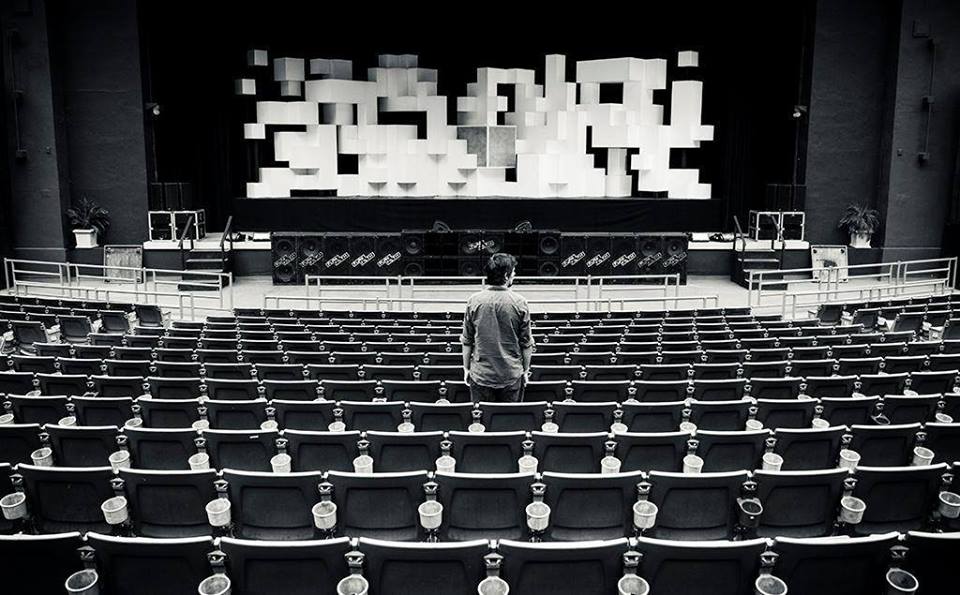
Amon Tobin and the ISAM stage.
I get the impression from my research that mobile DJs and warehouse parties are two elements that kickstarted sound system culture in California?
From what I know one main source was Latin backyard parties. People had mobile systems. California has good brands, Cerwin Vega was prevalent out here early, making bass bins at a good price, JBL is out here. There’s a lot of sound companies based around the southern California area. Kids pieced together systems, some joined forces. My recollection in the early days was of guys called Shredder, Boom Boys and Master Splinter. They would do walls of L36 bins stacked on top of each other, JBLs, old dual 15”s, stacked. Big walls. The raves became these giant walls of bass, you know. It just … it made the clubs look sad in comparison to what was happening in the underground with those systems. They were more powerful and mainly Latin cats doing the sound.
What was the first party you did sound for?
One of mine. I was doing a weekly called Happy Planet, on Tuesdays. It was just a weekly rave club, pushing the UK rave sound, US house and techno. I started another club on Fridays called NYC focused on house. It was … doing clubs and warehouse parties. To have your system … when you have your system you have a freedom. I never went to school for this … if you’re a DJ and promoter and you have a system, you don’t have to rely on a club with a decent sound, which for a long time in California was a hard thing to find, needle in a haystack. Unlike NYC where sound was a focus, here it was the last thing people focused on. It was furniture, lighting, pizazz … typical Hollywood mentality. So you had cheap speakers and systems.
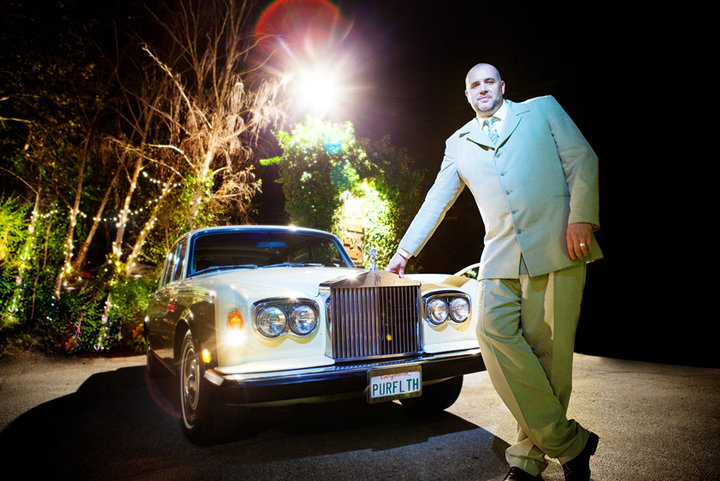
Sam XL
But the dawn of megaclubs changed that and brands became important for clubs, like Funktion 1. Back then it was mainly rock n roll being played, a little hip-hop, so the bass was never prevalent. Accumulating speakers, especially bass bins, you have the freedom to do a party wherever you want: on a beach, on a mountain top, a warehouse. That’s what came with the whole thing, it was a freedom for me. We didn’t need to rely on structures, we could create our own infrastructure, and that’s what the whole early rave thing was to me. It created an economy within an economy that was like underground, you know?
Legally speaking, what was it like in the 90s?
It’s like everything that you do, when it’s new you can pull the wool over the authority’s eyes on what’s really happening. And I say this but it’s always been laughable to me … the fact that you are supposed to get a permit to dance in a a democracy, free … wait a minute? Is this communist Russia?
I remember the first time I did a warehouse party and a cop came. I was known then as a basketball player, I was in the papers in Santa Barbara, the police knew me. I wasn’t some shady drug dealer, I was an upstanding member of society, and they didn’t understand what I was doing. They’d show up and ask for the permit and I’d answer that city hall said I didn’t need one as long as I didn’t serve alcohol. They would be like ok. And then we’d get into it about how ridiculous the idea of dancing permits are. This was at the same time the Criminal Justice Act was happening in the UK, so I didn’t want to see the same thing happen here. The attitude was ‘fuck you, we’ll dance if we want,’ it’s bullshit, we don’t care. I didn’t come here to have these rules enforced on me. That’s why people left England in the first place.
If the DJ is having fun it’s contagious
So doing these first warehouse parties, I was nervous but I’d find a place and tell them I needed temporary storage. This is the thing. If you rented it out for a month it was less suspicious then if you rented it for a night. That’s when people got funny. You’d say you had a company and needed storage before getting it shipped somewhere. If you paid a month upfront it was easy. You’d throw a party there every weekend. Police show up and you tell them it’s a clothing company, we have a promotional video for our stuff, we do well in Japan, so we need to promote there, and it’s all ‘oh good for you.’ I used to hire the sheriff’s son to work my door. They all knew the dude. They’d ask about alcohol and we didn’t allow it in the party so they didn’t have probable cause to come into the building. That was the main thing.
Fire marshals and zoning came later after the media started demonizing parties. When the media showed up they never focused on the good angles – community, music – it was all meat heads OD’ing, cars broken in. Scandal sells, right? It’s why you have a blockbuster about N.W.A but not P.E.
I had a partner who was artistically inclined, so we’d really do the décor up. Buy all this paint, get graffiti artists to do pieces, glow in the dark stuff, cover the warehouse. We’d buy 16mm projectors from schools, swap meets, and a friend used to make film loops and we’d buy them from him. My first party a friend did some 8mm projections, films and bits. It was all very art inclined, creative, not a lot of money. People were helping out, borrowing. It was always community based. Borrow turntables or lights and you can play the party. That’s how you could contribute and make it a whole.
Instead of just being a sound guy, I would hire Tonka Sound, a big system back in the days, speakers painted all bright yellow with their logo on. It was basically a copy of DJ Harvey’s system that used to run in Brighton with the Wicked guys. That was the name of their system, used to be on the beach in Brighton back in the Criminal Justice days. After it got too heavy they relocated to San Francisco and did stuff there. I’d hire them to do sound for me, but sometimes they’d be late or there was a problem so I became more self reliant. I’d handle all my sound, lighting, projectors, visuals, smoke machines, all the gear. And that gave me more freedom to do shows wherever I wanted to do them.
I think the sound was what attracted a lot of the DJs. They would tell their friends. That was what the DJs knew I did. A good system, a good mixer, everything working and how it should be. And that came from me also being a DJ, I knew what they needed in order to perform. I had an understanding of the culture, you know? Giving DJs a light to look through their records, for example. I tried to make it as smooth as possible for them so they’d have a good time. My philosophy was that if the DJ is having a good time, the crowd will also have a good time. There’s a symbiotic relationship there, and it’s felt. If the DJ is having fun it’s contagious.
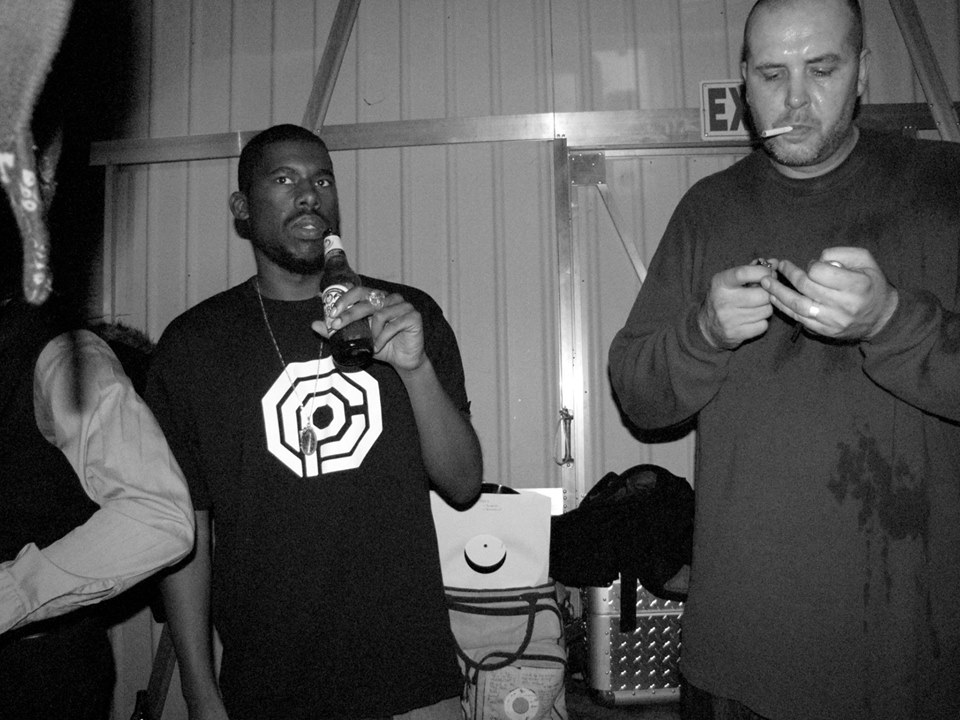
Sam XL and Flying Lotus
When did the legality of raves begin shifting on the west coast?
You have to remember we’re by the ocean, Long Beach and the south Bay are a huge shipping port, with containers full of everything that need storing. So L.A. has warehouses for storage everywhere. When the recession kicked in back in the 90s, the war with Iraq, the warehouses stood empty but landlords needed the money. What happened is that if somewhere began to pop off, like Culver City, and the police shut it down, then kids just moved to the south side or east side, or downtown. There’s so many areas to move to. You’re never restricted to any one area, unlike San Francisco or NYC. I don’t think they had so many options.
It got hairy when the media got hold of it. The demonizing. Do you know where your kids are tonight? Drug-fueled rave orgies. We’d watch this stuff and be like, ‘shit I wish it was like that.’ Come on man, it’s a bunch of kids hanging out, dancing, having a good time, and listening to music you can’t hear anywhere else. This stuff wasn’t played in clubs or radio. People came to hear it. This is the thing. As a country, as a state, as a city if you are not going to provide avenues for young people to express themselves then they’ll find a way.
L.A. gets overshadowed by the fake of Hollywood but at its heart it is a very artistic and passionate city. Drive around and look at all the murals! It’s a very artsy town and people express themselves. It’s being going on so long now that it’s changed, but back then in the early 90s, it was so alien and crazy. The clothes, the music, the art was so foreign to normal people it made them uncomfortable. It was easy for the media to demonize that and sensationalize it.
Sound system and rave culture is about taking control of the situation
The mayor is calling the chief of police, ‘we gotta do something about the rave parties, parents are calling.’ What happened in L.A. is that they shut down the warehouse scene and so it just moved out to the desert and that scene was born. All of a sudden you drive out with a generator, give people a meeting point and drive somewhere. So we’re very blessed in California that if one gets shut down you move to another place, and if the desert gets shut down you move to the forest. You just move and by the time you’ve done it all, it’s cooled down on the warehouse scene so you go back. Or, as happened in England, the warehouse scene shutting down also pushed promoters into clubs and then clubs had to let the promoters bring their rig to the club. Club systems looked bad so the owners needed to upgrade their shit.
To me, the whole sound system and rave culture, it’s just taking control of the situation and doing it how you would like to do it rather than putting it in the hands of somebody else. That’s why you have different sound systems with different styles. For me, the more the merrier. There’s always going to be a comparative edge, who’s the whatever, but at the end of the day, the more people dancing and getting along to good music, the better.
I take my sound seriously, what I do, because I enjoy seeing people have a good time, I enjoy seeing artists experience their music on a level they never have before and being like ‘omg I never heard my tracks sound like that.’ It’s cool when Flying Lotus came up after Ras G’s release party and said that was the best he’d ever heard Ras sound. This is the thing. All those people that are really talented … if I can just let them concentrate on performing and they can have the trust in me to take care of the audio part of it, then it’s good. I know it’s a win-win situation, because I experienced it as a DJ. You can never find the fucking sound guy. The levels are all smashed, it’s distorted, sounds like shit, and you want to turn it down but then it’s quiet and the sound guy has fucked off.
It’s taking the matter into your own hands, fuck those rock n roll yahoos who set up the system and go to the bar. When you find me doing sound I’m by the board the whole time. I never leave. It doesn’t matter how many hours, I’m always there. I’m making adjustments, especially nowadays with digital files. People coming in trying to play a ringtone on a sound system, you know what I mean? You have to watch it.
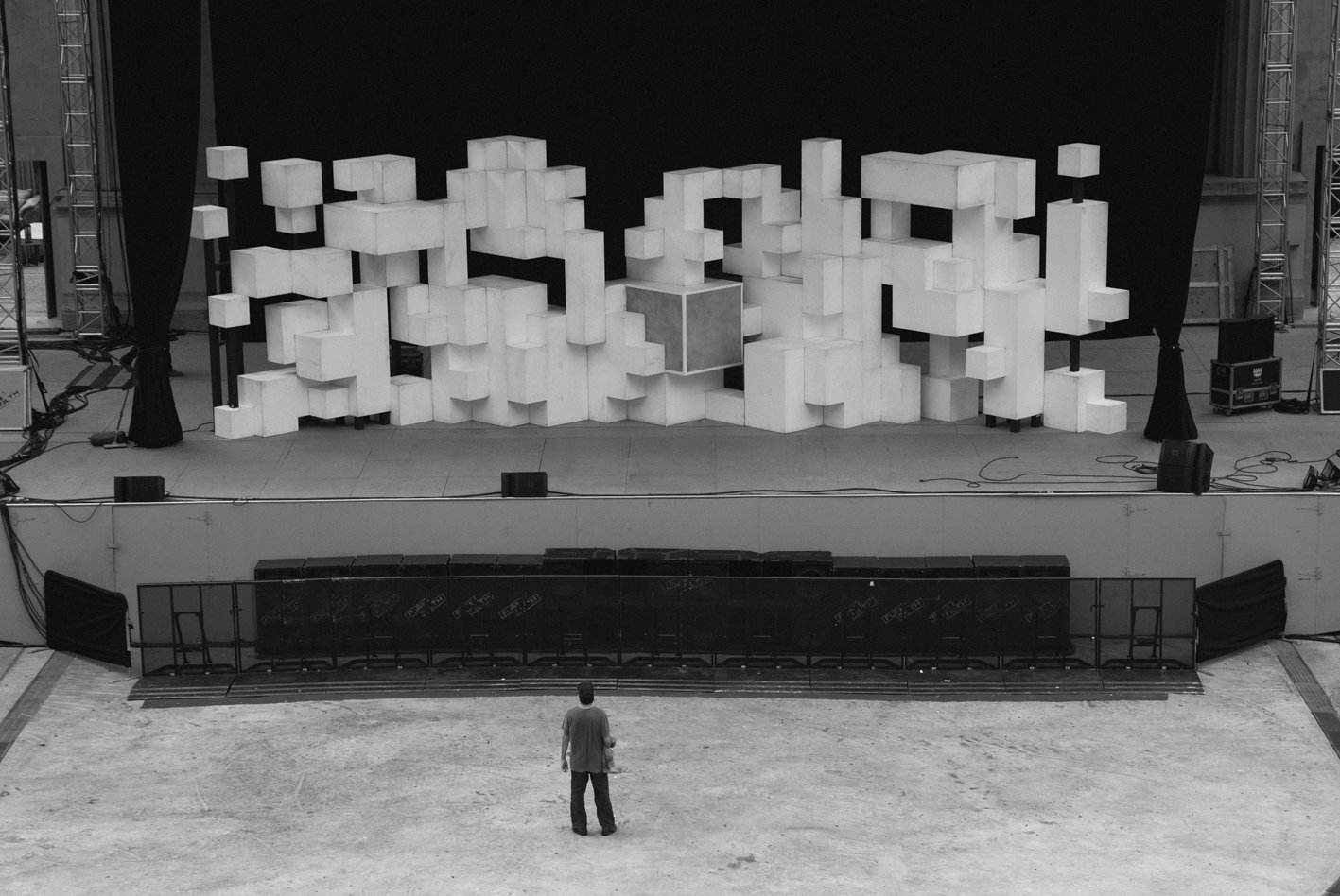
ISAM stage
